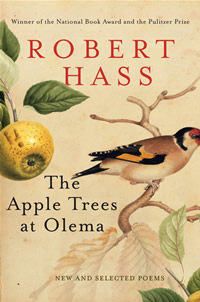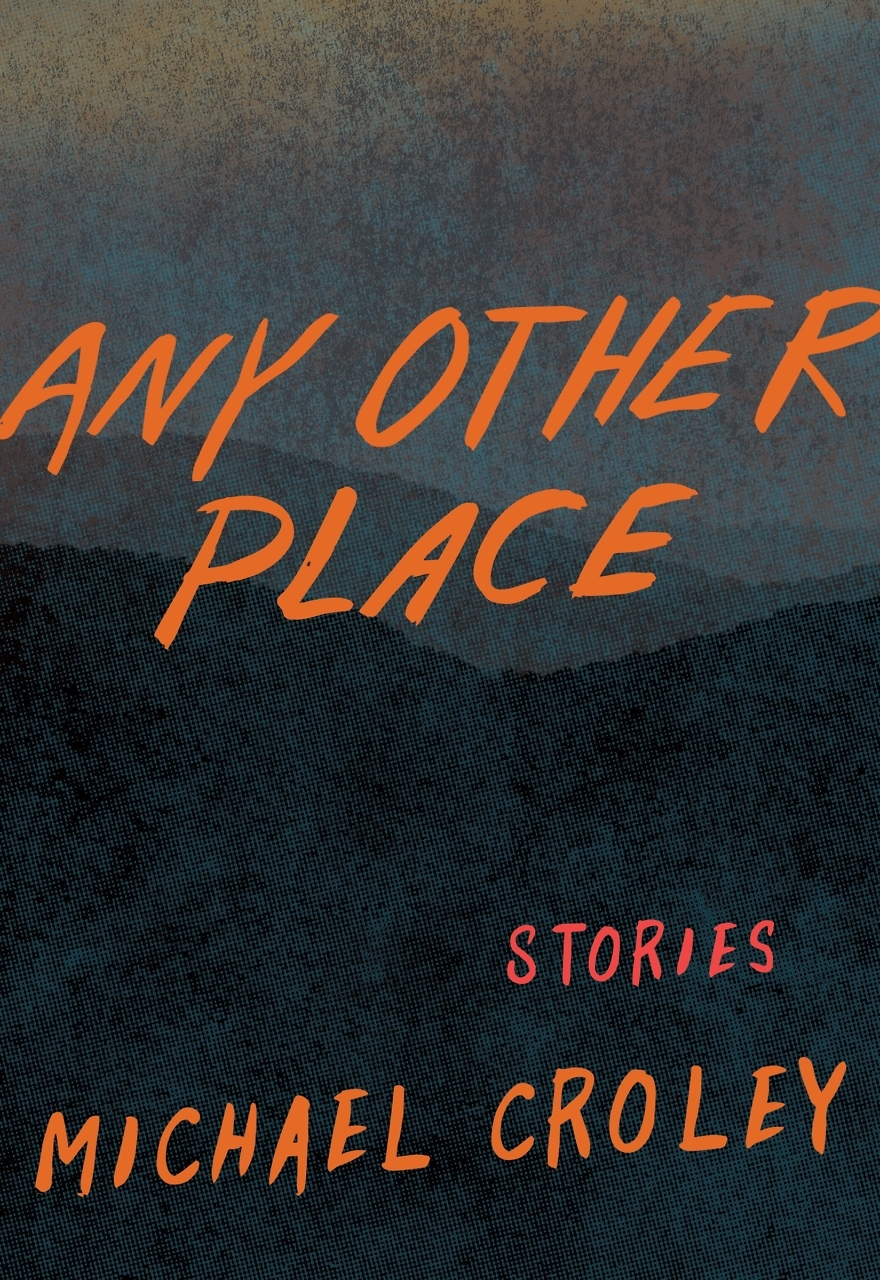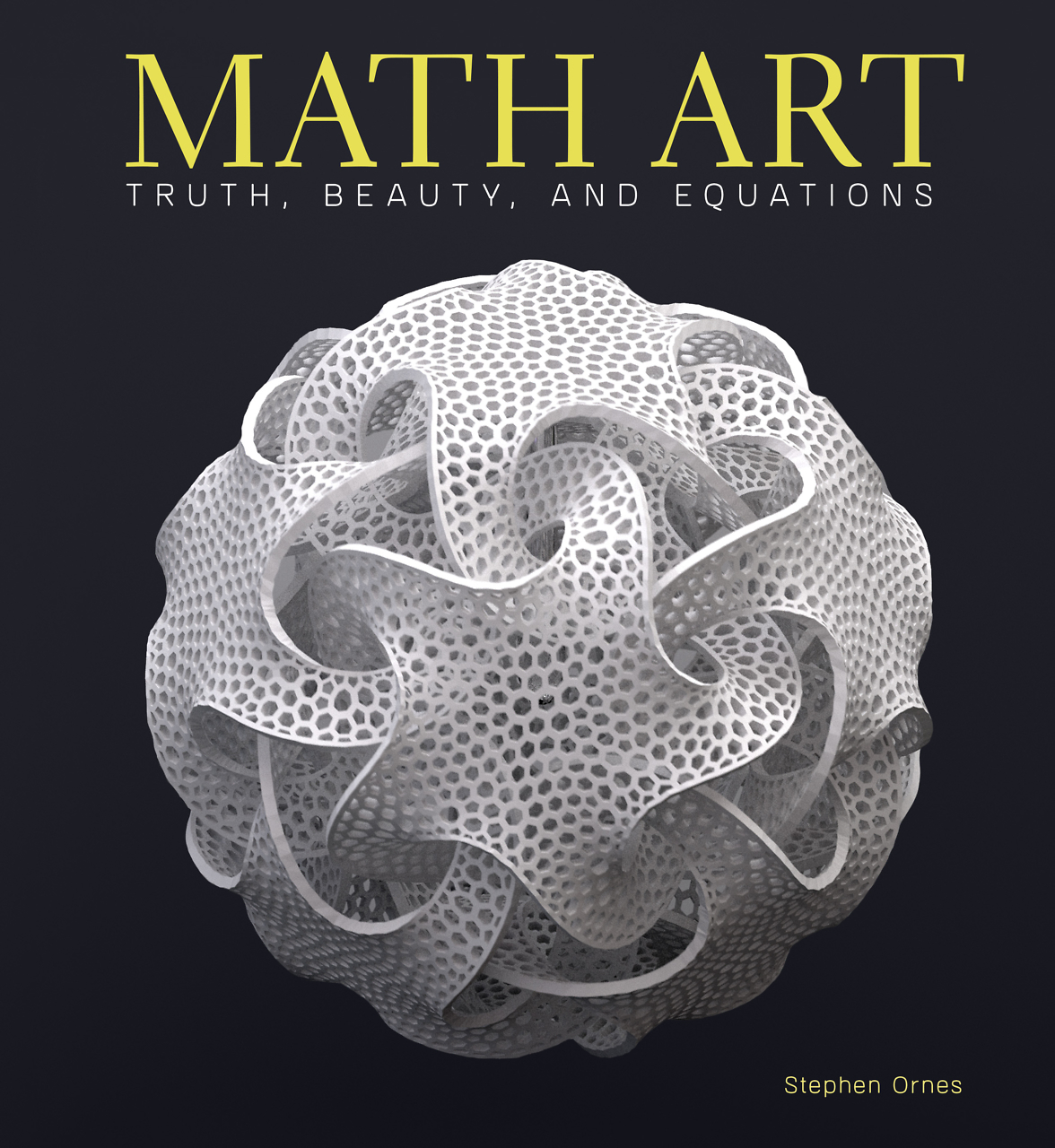Evolution of an American Poet
The poetry of Robert Hass is surveyed in a new collection
A 2009 profile in The Wall Street Journal called Robert Hass a “poetry rock star”—a label that fits, insofar as rock stars enjoy fame and a certain reverence. Thanks to his stint as U.S. Poet Laureate from 1995-97 and to his poetry column in The Washington Post, Hass is one of America’s best-known living poets. His long list of awards, including a Pulitzer Prize and a National Book Award, attest to his literary prestige, which is further enhanced by acclaim as a translator and critic. But if Hass is a rock star, he’s more Colin Meloy than Bono. His poetry is modest, direct, witty, and erudite—qualities on abundant display in The Apple Trees at Olema: New and Selected Poems, which surveys his work over more than three decades.
Hass has said that his first memory is the sound of the foghorns in his native San Francisco, and browsing though a collection that spans his career will remind readers that his work has always had a strong regional flavor, rich with references to the history and natural beauty of California. The two often come together, as in “Palo Alto: The Marshes,” an early poem in which ghosts of a brutal past haunt the landscape.
[…] I knew her eyes
had watched the hills seep blue with lupine after rain,
seen the young peppers, heavy and intent,
first rosy drupes and then the acrid fruit,
the ache of spring.
 Such vivid, sensual lines about the natural world are typical of Hass. Flowers, birds, and bodies of water—Californian and otherwise—are ubiquitous in his poems, where they tend to serve as signposts for human feeling. In his earlier work they are often featured players, while in more recent poems they are more likely to drop into the narrative in an offhand but powerful way. In one of the new poems in this collection, “The Red Chinese Dragon and the Shadows on Her Body in the Moonlight,” flowers stand in for everything an errant husband is abandoning.
Such vivid, sensual lines about the natural world are typical of Hass. Flowers, birds, and bodies of water—Californian and otherwise—are ubiquitous in his poems, where they tend to serve as signposts for human feeling. In his earlier work they are often featured players, while in more recent poems they are more likely to drop into the narrative in an offhand but powerful way. In one of the new poems in this collection, “The Red Chinese Dragon and the Shadows on Her Body in the Moonlight,” flowers stand in for everything an errant husband is abandoning.
[H]e’d felt unable to move, stuck in some deep well
of dry sorrow, staring at the cold early blossoms
of the plum trees and at the carelessly lovely look
of the gardens his neighbors had, in the West Coast way,
labored over …
Limning the convoluted, contradictory life of the heart in language that is both graceful and fiercely direct has always been Hass’s particular gift. Browsing through both new and older work in The Apple Trees at Olema, it’s clear that the gift was there from the beginning, and remains undiminished. The confused, wounded male psyche on display in “The Red Chinese Dragon” is depicted just as powerfully in “In Weather,” a poem from his 1973 collection, Field Guide.
I tried to hate my wife’s cunt,
the sweet place where I rooted,
to imagine the satisfied disgust
of cutting her apart,
bloody and exultant
in the bad lighting and scratchy track
of butcher shops
in short experimental films.
It was easier than I might have supposed.
 Readers who only know Hass from his more tender and cerebral poems like “Meditation at Lagunitas” may be surprised by the emotional brutality that occasionally crops up throughout his work. (And possibly also by his language. Hass never makes a fetish of profanity but if words like “fuck” and “cunt” distress you, he is not your poet.) Likewise, the antiwar rhetoric that creeps into the Pulitzer Prize-winning 2007 collection, Time and Materials, may not be to everyone’s taste, though anyone who shares Hass’s pacifist bent will take pleasure in the elegant polemics “Bush’s War” and “A Poem.”
Readers who only know Hass from his more tender and cerebral poems like “Meditation at Lagunitas” may be surprised by the emotional brutality that occasionally crops up throughout his work. (And possibly also by his language. Hass never makes a fetish of profanity but if words like “fuck” and “cunt” distress you, he is not your poet.) Likewise, the antiwar rhetoric that creeps into the Pulitzer Prize-winning 2007 collection, Time and Materials, may not be to everyone’s taste, though anyone who shares Hass’s pacifist bent will take pleasure in the elegant polemics “Bush’s War” and “A Poem.”
Hass’s trolling of the dark side is balanced by his sly sense of humor. He likes to play, offering a clever literary riff in “The Nineteenth Century as a Song,” and a dumb-but-irresistible one-liner in “Poem with a Cucumber in It.” (If you think I am going to make / A sexual joke in this poem, you are mistaken.) But more often, humor provides ironic counterpoint in poems about grief and love. “My Mother’s Nipples” uses a series of impish rhymes—What could be more fair / than les nipples de ma mère?—to set the stage for a heartbreaking recollection of Hass’s alcoholic mother. The dash of absurdity saves the poem from the Eeyore-with-a-thesaurus tone that so often afflicts confessional poetry.
It’s always a pleasure to be able to explore the range of a poet’s work in a single volume, but there’s a particularly engaging quality to a retrospective collection like The Apple Trees at Olema, which allows a glimpse of the evolution of a poet who is still writing—who is still a work in progress, so to speak. With decades of work compressed into a single volume, the career of the poet becomes a narrative, but one that is intriguingly incomplete. The new poems in this collection show Hass to be as awake to the world and to language as the poet of Field Guide and Time and Materials, promising future work that is just as brilliant and moving.
Robert Hass will give a public reading at the Sewanee Writers’ Conference on July 23 at 11 a.m.


